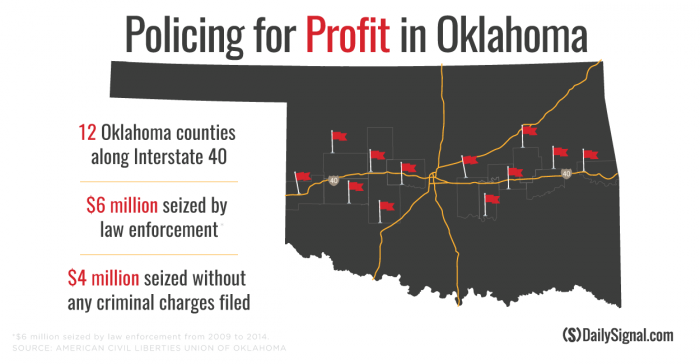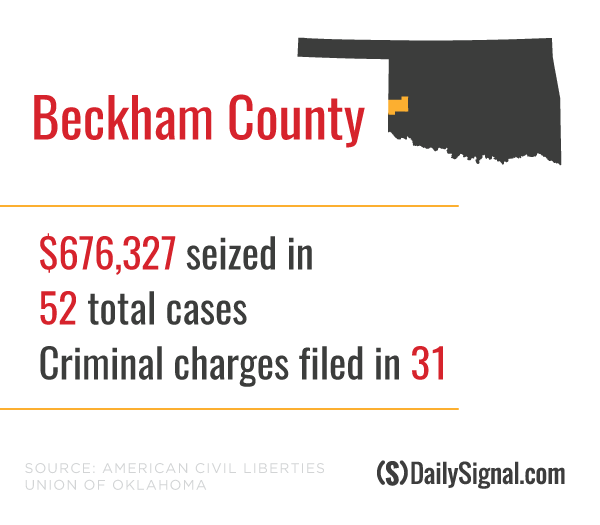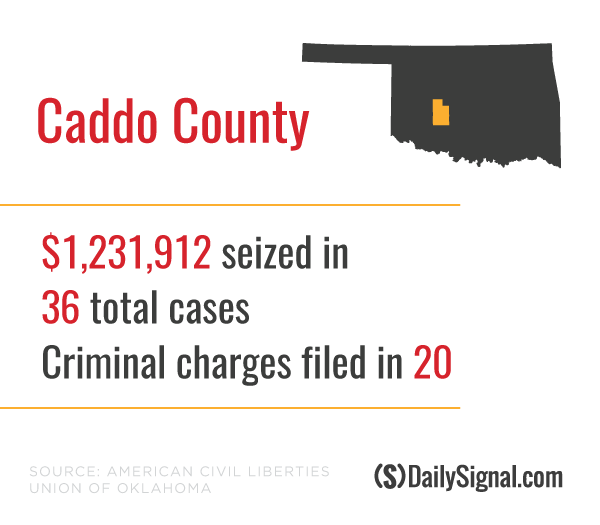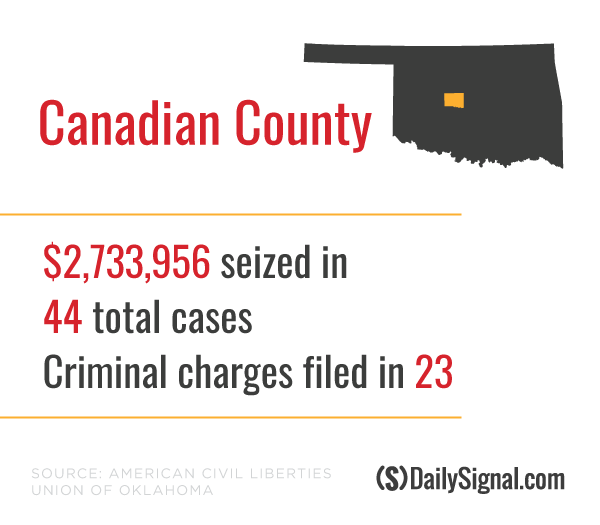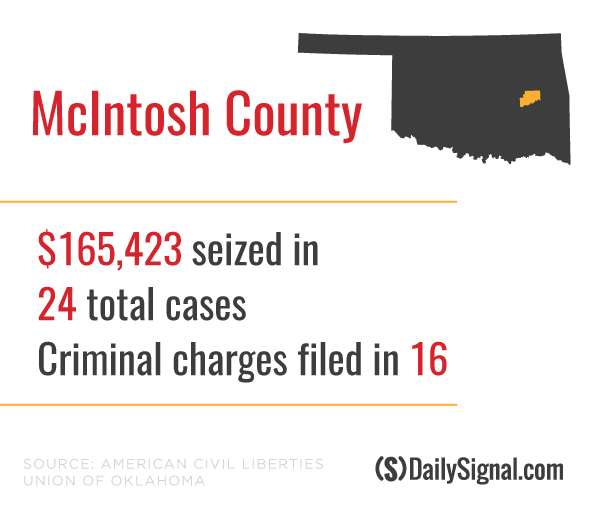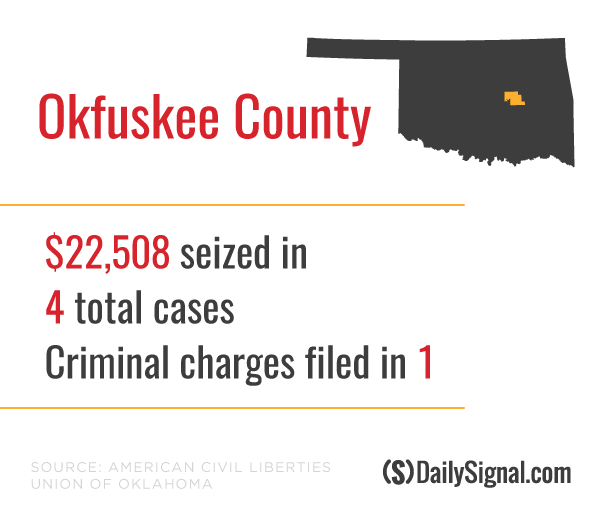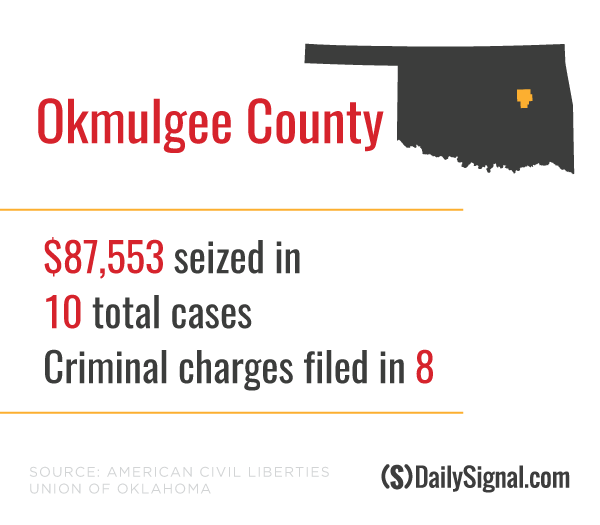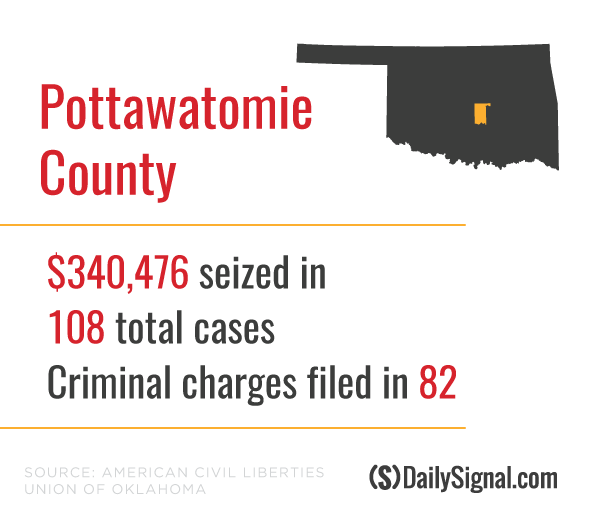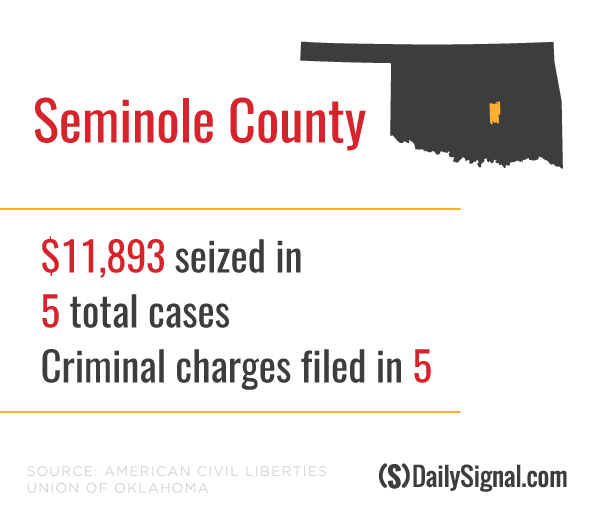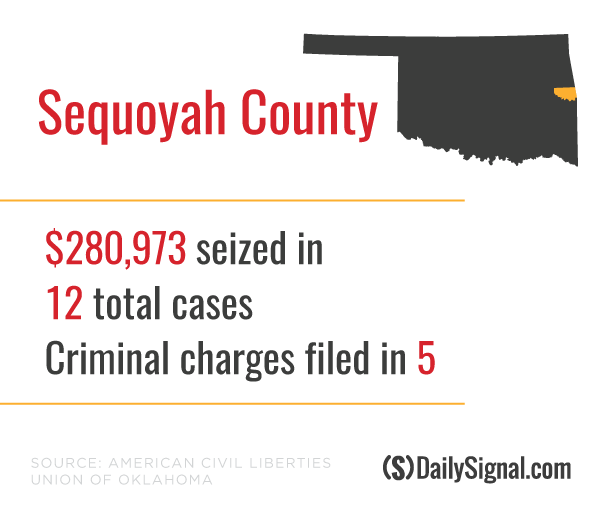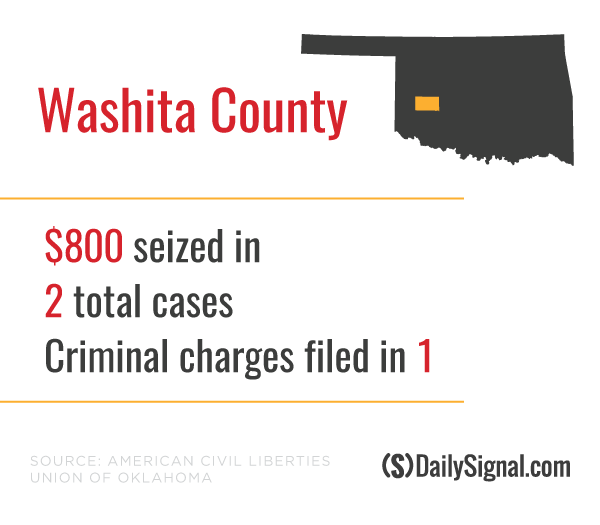From the prestigious Heritage Foundation comes this shocking article that looks at the rise of civil asset forfeiture and how police forces are profiting from what amounts to straight theft.
Sensible asset protection has never been more critical. The police in just 12 counties in Oklahoma were confiscating cash – and then not charging the person with a crime. And it’s not just OK in OK to rip off people, it happens right across the country.
Naturally, the police drag up the old argument that any attempt to prevent them from confiscation will only encourage drug dealers and money launderers. If you carry a lot of cash, especially in your vehicle, be sure to have a ton of documentation explaining it.
In 12 Oklahoma Counties, Millions Seized From Property Owners Who Were Never Charged With Crimes
In Oklahoma, law enforcement agencies across 12 counties took $6 million in cash over a five-year span.
Less than half of the money came from property owners who were charged with a crime.
The American Civil Liberties Union of Oklahoma analyzed records regarding cash seizures that took place in a dozen counties along Interstate 40, which bisects the state. According to the ACLU of Oklahoma’s findings, law enforcement agencies seized $6 million in cash from property owners through civil asset forfeiture from 2009 to 2014. Of the money seized, just $2 million came from property owners who were charged with a crime.
The ACLU of Oklahoma’s findings come as the state prepares to debate reforms to its civil asset forfeiture laws. Civil asset forfeiture is a tool that gives law enforcement the power to seize property and cash if they’re suspected of being connected to a crime.
In recent years, law enforcement agencies have come under fire for “policing for profit,” which describes a trend of police using civil asset forfeiture to pad agency budgets.
Over a five-year span, there were 319 cash seizures in the 12 counties the ACLU of Oklahoma examined records for. Charges were filed in 205 of the cases. The group could not find charges related to the remaining 114 seizures.
In only one county, Seminole, criminal charges were filed in each forfeiture case.
State Sen. Kyle Loveless, a Republican from Oklahoma City, introduced legislation that would prohibit law enforcement from seizing property and cash unless the property owner has been convicted of a crime. The Republican’s bill also requires proceeds from forfeitures to go into the state’s general fund, instead of to the law enforcement agency conducting the seizure.
Law enforcement is fighting the bill. At a hearing on the proposed reforms earlier this week, officials from the law enforcement community warned that the changes would hinder their ability to curb money-laundering and drug-trafficking.
Darrell Weaver, director of the Oklahoma Bureau of Narcotics and Dangerous Drug Controls, criticized the legislation, calling it an “attack” on law enforcement.
“We could sit here all day and see across the nation, sometimes even in our own state, it’s almost like the authority of law enforcement has been lost, and there’s many, many attacks going on,” he said at a hearing in Tulsa. “And it seems to me this would fall right in.”
Here’s how much cash law enforcement in the 12 counties along Interstate 40 seized, and how many criminal charges were filed. Scroll to the bottom for the 7 things you should know about civil asset forfeiture.
Also from the Heritage Foundation is this great explanation of why and how the police can get away with this.
Civil Asset Forfeiture: 7 Things You Should Know
1. What is civil asset forfeiture?
Civil asset forfeiture is a legal tool that allows law enforcement officials to seize property that they assert has been involved in certain criminal activity. In fact, the owner of the property doesn’t even need to be guilty of a crime: Civil asset forfeiture proceedings charge the property itself with involvement in a crime. This means that police can seize your car, home, money, or valuables without ever having to charge you with a crime. There are many, many stories of innocent people being stripped of their money and property by law enforcement.
2. Why would we ever do this?
Today, civil forfeiture is intended to give law enforcement a tool they can use to go after organized crime, including drug dealers and their organizations. While its roots in the common law are deep, modern civil forfeiture is justified primarily on the grounds that it allows law enforcement to seize the assets and ill-gotten gains of these criminals, using the property and proceeds to fight against other alleged criminals. Unfortunately, civil asset forfeiture is also used by law enforcement as a way to generate revenue, and many of its targets are innocent members of the public.
3. But don’t police target only criminals?
Unfortunately, no. There are many stories of innocent people having their property seized. For example, between 2006 and 2008, law enforcement agents in Tenaha, Texas, engaged in a systematic practice of seizing cash and property from innocent drivers with absolutely no evidence of wrongdoing. In Philadelphia, police seized the home of two sisters whose brother, who did not live there, showed up while trying to evade the cops. In Detroit, cops seized over a hundred cars owned by patrons of an art institute event—because the institute had failed to get a liquor license. You can be totally innocent and still be unable to stop the government from seizing your property.
4. What if I’m innocent? Surely, innocent people can’t have their property taken.
Being innocent does not mean that a state has to return your property. The Supreme Court of the United States has held that the “innocent owner” defense is not constitutionally required. Furthermore, even in states where you do have an innocent owner defense, the burden is typically on you. Your property is presumed to be guilty until you prove that you are innocent and that your property therefore should not be forfeited. In other words, you must prove (1) that you were not involved in criminal activity and (2) that you either had no knowledge that your property was being used to facilitate the commission of a crime or that you took every reasonable step under the circumstances to terminate such use. And all the while, the police retain your property. To cap it all off, the success rate for winning back property is low. Pragmatic property owners, however innocent, may reason that it is best to cut their losses rather than challenge the forfeiture in court.
5. That’s crazy!!! This can’t happen in my state.
It might be crazy, but civil asset forfeiture happens in every state in the union. Even if the state has laws that limit it, state and local law enforcement authorities can still seize property by partnering with federal law enforcement officials in a system called “equitable sharing,” and payouts to state and local agencies have increased nearly 250% over a 12-year period.
6. But everybody at least gets their day in court, right?
No. In fact, the majority of federal civil forfeitures end administratively, meaning that the property is automatically forfeited after a certain period of time because the owner of the property did not challenge the seizure. Forfeiture proceedings might be barred because of waivers procured by law enforcement officials who pressure property owners to renounce ownership of their cars, homes, or money in order to avoid facing (often bogus) criminal charges. This quid pro quo raises serious fundamental questions about the fairness of the process. And if a property owner holds out and goes to court, he or she will face an uphill, costly, and lengthy battle.
7. My state has good forfeiture laws on the books, so none of this is a problem, right?
Not necessarily. Federal law can do an end run around good state law. A process called equitable sharing allows local law enforcement officials to team up with federal law enforcement agents to seize property under federal forfeiture law that could not be seized under applicable state forfeiture law. Through equitable sharing, local law enforcement agencies pocket a portion of the proceeds from the seizure and the feds keep the rest. This is a way for local law enforcement to circumvent state law and continue to profit from civil asset forfeitures.

